Herbal Tea
There are a lot of good reasons why herbal tea is now being preferred over regular tea. In fact, sales have increased by 31% since 2012 in the UK alone. There are many different kinds of herbal tea that can be chosen from. Loose herbs may be brewed singly or mixed with other pre-made blends for a desired taste.
Selections can either be calming like chamomile or refreshing like spearmint; invigorating including ginger or energising like yerba mate. With more than seventy different types, our website offers a wide variety of choices when it comes to herbal teas to ensure everyone finds their perfect match.
Showing 1–12 of 125 results
-

Ashwagandha Tea
From £2.82— or subscribe and save 10%Select options This product has multiple variants. The options may be chosen on the product page -
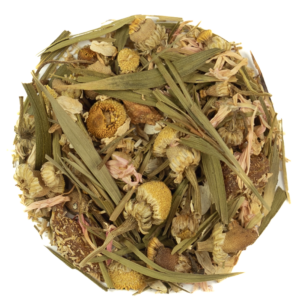
Bamboo and Camomile Tea
From £3.87— or subscribe and save 10%Select options This product has multiple variants. The options may be chosen on the product page -
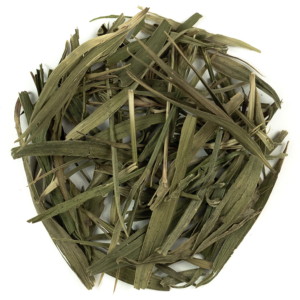
Bamboo Tea
From £5.07— or subscribe and save 10%Select options This product has multiple variants. The options may be chosen on the product page -

Blackcurrant Leaf Tea
From £4.63— or subscribe and save 10%Select options This product has multiple variants. The options may be chosen on the product page -

Burdock Root Tea
From £2.36— or subscribe and save 10%Select options This product has multiple variants. The options may be chosen on the product page -
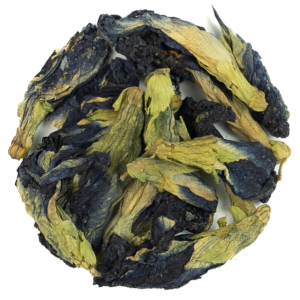
Butterfly Pea Flower Tea
From £3.49— or subscribe and save 10%Select options This product has multiple variants. The options may be chosen on the product page -
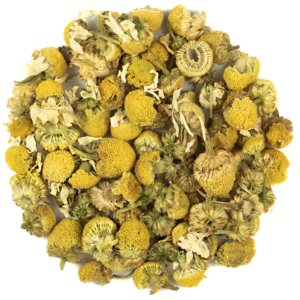
Camomile Tea
From £2.76— or subscribe and save 10%Select options This product has multiple variants. The options may be chosen on the product page -
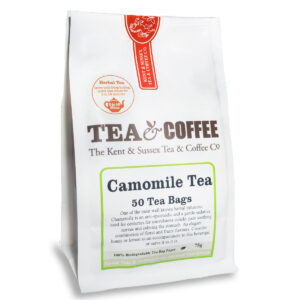
Camomile Tea Bags
£3.06— or subscribe and save 10%Add to basket -
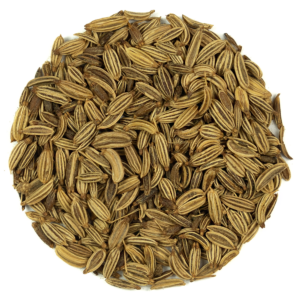
Fennel Seed Tea
From £1.67— or subscribe and save 10%Select options This product has multiple variants. The options may be chosen on the product page -
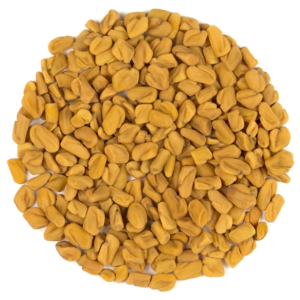
Fenugreek Tea
From £1.60— or subscribe and save 10%Select options This product has multiple variants. The options may be chosen on the product page -

Hemp and Goji Berry Tea
From £2.79— or subscribe and save 10%Select options This product has multiple variants. The options may be chosen on the product page
Herbal Tea Types
With an abundance of options, there’s no shortage of loose herbal tea and blends, for those seeking a caffeine-free alternative to true teas.
It is a broad term that encompasses many different kinds of teas, including:
– Herbal infusions: They are single-ingredient teas made from dried flowers, leaves, seeds and roots. Examples include Chamomile Flower Tea, spearmint, ginger and even Rooibos Tea (bushy red bush) tea.
– Herbal blends: Blends are two or more herbs combined to make a herbal tea. Examples include calming Turmeric and Ginger Tea and Camomile and Lavender Tea.
Enjoyed for centuries, herbal teas have seen a resurgence in popularity due to their distinct and delicious flavours as well as the multitude of health benefits they provide. From promoting mental clarity and emotional stability to aiding physical well-being, these timeless beverages offer countless advantages.
Herbal Tea Benefits
The varied benefits of herbal tea depend mainly on the type of herb being consumed. They provide an array of health advantages, such as:
– Promoting digestion and gut health
– Reducing inflammation
– Enhancing mental clarity and focus
– Boosting immunity
– Helping to promote relaxation
– Relieving menstrual cramps
– Improving skin health
Herbal teas are a great way to reap the benefits of nature’s many plants. Enjoy them hot, cold, or mixed with other ingredients for an even more enjoyable experience! Herbal loose leaf tea is the perfect beverage for any time of day and can help you relax after a long day or focus during your morning ritual.
Herbal Tea for Weight Loss
Herbal tea is a powerful weight loss tool which can naturally boost your metabolism, detoxify your body and help curb those cravings. Those who wish to slim down will benefit from its anti-obesity properties as well as its low-calorie count – an effective combo when it comes to reducing fat cells in the body.
Hibiscus Tea is a powerful natural remedy that does more than just curb your sweet cravings. It has been scientifically proven to have numerous health benefits, including controlling lipid metabolism and reducing adipocyte hypertrophy which leads to weight loss.
In addition, studies suggest Hibiscus Tea Bags also help protect against cancer development by protecting from oxidative damage caused by free radicals, lower blood pressure as well as improve liver functioning.
Refresh yourself with a cup of Dandelion Tea, a delicious, fragrant blend that not only soothes and relaxes the senses but also has beneficial diuretic properties to help flush away excess water weight and reduce bloating.
Additionally, its natural ingredients can speed up your liver’s metabolic activity for several hours leading to improved digestion of fat, carbohydrates and sugar absorption by your body.
Herbal Tea for Anxiety
Anxiety is a feeling of worry and fear that can be caused by life stressors such as work or school, relationships, finances, and more. Herbal loose tea can help reduce symptoms of anxiety by providing soothing and calming effects.
Some of the best herbs to use in a Herbal Tea blend include Camomile, Lemon Balm Tea, Lavender Tea, Passion Flower, and Holy Basil. These herbs are known for their anxiolytic properties which can help reduce tension, calm the nerves and improve relaxation.
Herbal teas are not only beneficial for relieving stress but also provide additional benefits such as improved digestion, better sleep patterns and increased energy levels – all of which play a role in reducing anxiety.
Herbal tea is a great way to naturally reduce your stress levels and improve your mental health. Whether you need an extra boost in the morning or a calming beverage before sleep, Herbal Tea has all the benefits you need! Start drinking Herbal Tea today and feel the difference it can make in your life.
Herbal Tea for Sleep
If you’re struggling to get a good night’s sleep, Herbal Tea can help! They contain ingredients that have sedative and relaxant effects on the body, making them perfect for winding down before bed. Some of the best Herbal Teas for sleep include Camomile Tea, Valerian Root Tea, and Lavender. These herbs are known for their calming and relaxing effects which can help improve sleep quality.
Lavender Tea acts as a temporary sedative, with studies suggesting that aromatherapy or tea can help reduce fatigue and improve sleep quality. In one experiment, those drinking lavender-infused beverages showed greater alertness than the control group.
Camomile has been scientifically proven to improve sleep quality and reduce depressive symptoms. A study of postpartum women found that those who drank camomile tea experienced improved restful nights, fewer sleep disturbances, and a decrease in depression symptoms.
Valerian Root Tea has been heralded as a potential answer to sleeplessness and anxiety. After an extensive analysis of 60 studies over four decades, it looks like this natural remedy may be the key for many people seeking restful sleep cycles and calming effects on their emotional well-being. Buy Teas that may help you sleep.
Herbal Tea for Acid Reflux
When suffering from acid reflux or GERD, stomach acids can backflow into the oesophagus due to an improperly closing lower oesophagal sphincter. This may lead to irritation and discomfort but if left untreated, it could cause permanent damage as well.
Although these medical terms are often used interchangeably, those who experience chronic recurrence of symptoms should focus on long-term solutions for proper management to avoid any potential complications down the road.
Are you looking for a way to gain relief from your acid reflux symptoms? Consider trying herbal leaf tea – the natural ingredients of these drinks may be just what you need to alleviate uncomfortable feelings of heartburn and regurgitation.
When consumed in moderation, ginger tea can be extremely beneficial to those suffering from acid reflux. The natural compounds and antioxidants found in the root can not only reduce inflammation.
But also soothe gastrointestinal irritation and decrease the chance of stomach acids reaching your oesophagus. Additionally, this warm drink has been known to act as a remedy for nausea symptoms too.
Licorice tea has been used as a herbal remedy since ancient times and recent studies have revealed its many benefits for treating acid reflux and GERD, such as reducing heartburn, inflammation symptoms, and upset stomach.
Glycyrrhizin is the primary active compound in Liquorice Root Tea that can increase mucus to protect the digestive tract from acid damage; however, caution should be taken when consuming it due to potential adverse side effects associated with high levels of glycyrrhizin so processed products may be wiser choices.
Herbal Tea for Constipation
People have been finding relief from digestive concerns for centuries through the use of herbal teas. By stimulating digestion, these flavorful infusions can provide an effective solution to constipation woes.
Many individuals experience disruption of their normal bowel function when they have fewer than three weekly movements. In these cases, the stool can be hard and dry to pass – a sign that constipation may be present even if daily movement isn’t necessary for regularity.
Peppermint tea has long been used to soothe discomfort and aid digestion. With its natural menthol content, it helps relax muscles in the digestive system for effective relief from constipation or an upset stomach.
Making a habit of sipping our Peppermint Tea Bags after meals may be beneficial if you experience these issues regularly – not only is peppermint soothing, but many over-the-counter medicinal aids also contain this same herbal extract.
Herbal Tea for Headaches
Headaches can come in a variety of forms and intensities. Tension headaches bring mild to moderate pain that usually affects both sides; whereas, migraines present more intense pain typically on just one side. These are only two possible types – there is much more potential for experiencing other kinds too.
Enjoy a soothing cup of tea to help ease the discomfort from your headache. A warm beverage is an excellent way to reduce throbbing pain, allowing you some respite so that you can regain focus and tackle life’s challenges with more clarity.
Ginger is an essential ingredient in many kitchens, not just for its distinctive taste but also because it offers a variety of health benefits. Recent studies have discovered that the powerful antioxidants found in Ginger Tea can reduce inflammation and even act as an effective treatment option for migraine sufferers.
2014 research showed consumption levels rivalled those seen with sumatriptan, one of the most common medications taken by people who suffer from migraines.
Herbal Tea in Pregnancy, are they Safe?
Herbal teas may offer an enticing caffeine-free alternative for expecting mothers. Despite its alluring properties, it’s important to consider that these concoctions are made from dried fruits and plants – which can hold potentially dangerous compounds when consumed during pregnancy; leading to adverse side effects that should be taken seriously.
When it comes to pregnancy, the safety of herbs can be tricky due to their varied effects. While tea made from culinary seasonings is generally safe for expectant mothers, Parsley Tea and Sage Tea should not be consumed during this period as they may pose a risk if taken in large amounts.
They become notorious for their potential associations with high blood pressure and, in some cases, miscarriage. The risks may be low – but they are present nonetheless.
If you’re looking for a natural way to help with sleep throughout your pregnancy, herbal tea may seem like the perfect solution. However, it is important to exercise caution and avoid teas containing Valerian Tea due to potential effects on fetal health. If consumed at all, limit intake of these blends to no more than one cup per day over six weeks or less.
Raspberry Leaf Tea is believed by some expectant mothers to help prepare the uterus for childbirth, yet significant evidence has still not been collected. To ensure the safety and effectiveness of any remedy during pregnancy, always discuss it with an experienced midwife or doctor as well as a medical herbalist who specialises in maternal care.

 Loose Leaf Tea
Loose Leaf Tea Pyramids
Pyramids Tea Bags
Tea Bags Africa
Africa Assam
Assam Ceylon
Ceylon Chinese
Chinese Darjeeling
Darjeeling European
European Indian
Indian Japan
Japan Nepal
Nepal South East Asia
South East Asia Ayurveda Tea
Ayurveda Tea Black Tea
Black Tea Chai Tea
Chai Tea Flowering Tea
Flowering Tea Fruit Tisanes
Fruit Tisanes Green Tea
Green Tea Herbal Tea
Herbal Tea Matcha Tea
Matcha Tea Oolong Tea
Oolong Tea Organic Tea
Organic Tea Pu erh Tea
Pu erh Tea Rooibos Tea
Rooibos Tea White Tea
White Tea Asian Coffee
Asian Coffee Caribbean Coffee
Caribbean Coffee Central American Coffee
Central American Coffee South American Coffee
South American Coffee Coffee Blends
Coffee Blends Decaffeinated Coffee
Decaffeinated Coffee Espresso Coffee
Espresso Coffee Ethically Sourced Coffee
Ethically Sourced Coffee Flavoured Coffee
Flavoured Coffee Organic Coffee
Organic Coffee Single Origin Coffee
Single Origin Coffee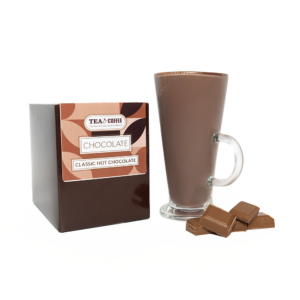 Classic Hot Chocolate
Classic Hot Chocolate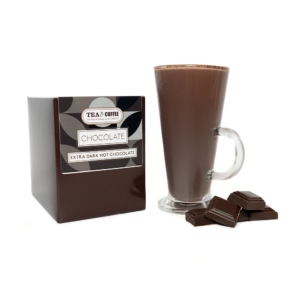 Dark Hot Chocolate
Dark Hot Chocolate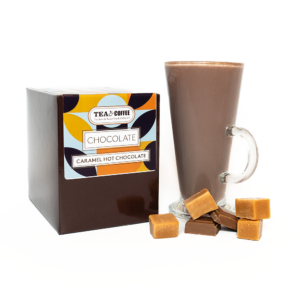 Caramel Hot Chocolate
Caramel Hot Chocolate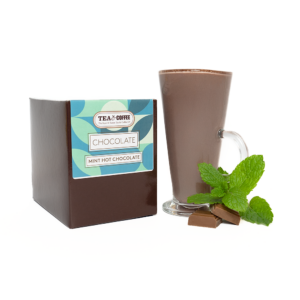 Mint Hot Chocolate
Mint Hot Chocolate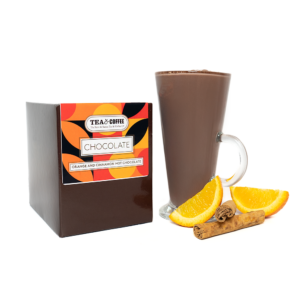 Orange and Cinnamon Hot Chocolate
Orange and Cinnamon Hot Chocolate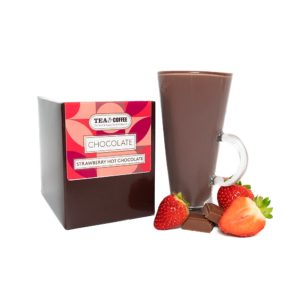 Strawberry Hot Chocolate
Strawberry Hot Chocolate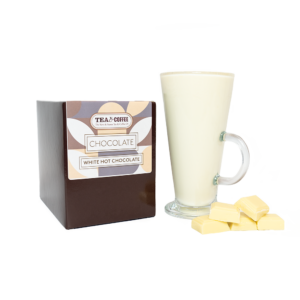 White Hot Chocolate
White Hot Chocolate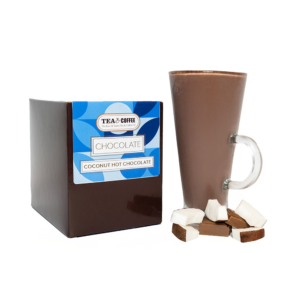 Coconut Hot Chocolate
Coconut Hot Chocolate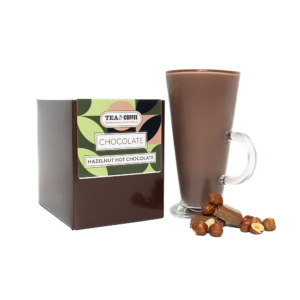 Hazelnut Hot Chocolate
Hazelnut Hot Chocolate Loose Tea Filters
Loose Tea Filters Tea Accessories
Tea Accessories Tea Bricks
Tea Bricks Tea Caddies
Tea Caddies Tea Caddy Spoons
Tea Caddy Spoons Tea Gift Ideas
Tea Gift Ideas Tea Infusers
Tea Infusers Tea Strainers
Tea Strainers
